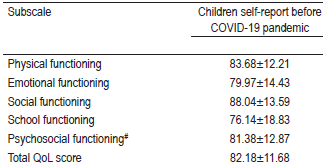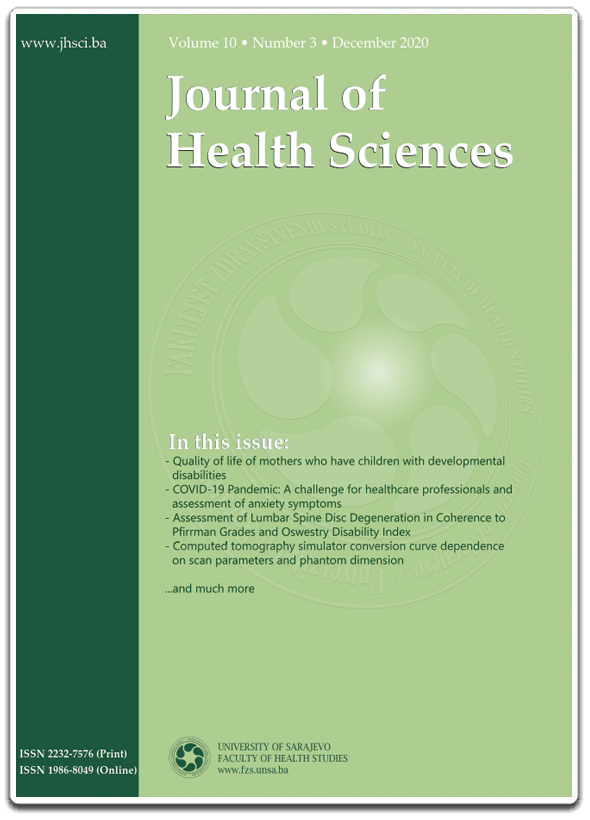Quality of life among Croatian primary school-age children before and after the COVID-19 pandemic
DOI:
https://doi.org/10.17532/jhsci.2025.2702Keywords:
Quality of life, COVID-19 pandemic, children, parents, CroatiaAbstract
Introduction: During the lockdown period, numerous different stressors negatively affected children and adolescents in the general population. Children under the age of 18 were the most vulnerable and most likely to suffer from more complex psychiatric symptoms during the closures of educational institutions. This study aimed to measure and compare the quality of life (QoL) of Croatian primary school-aged children before and after the coronavirus disease-19 (COVID-19) pandemic.
Methods: The participants were 310 primary school children aged between 8 and 12 years and their parents or caregivers. QoL was measured by the Paediatric Quality of Life (PedsQL™) inventory generic core scale, which includes children’s- self-report (CSR) and parents-proxy-report (PPR) versions for ages 8-12 years. The significant difference of results in CSR and PPR was analyzed with a Student’s t-test. The level of significance was set to p < 0.05.
Results: Before the COVID-19 pandemic, CSR and PPR gave almost the same result on every subscale, including total QoL, which measured 82.18 ± 11.68 for children and 82.11 ± 11.66 for parents. Children’s QoL was significantly worse after the pandemic than it was before, according to both CSR and PPR, with the total QoL scale measuring 77.82 ± 17.08 and 77.96 ± 17.33, respectively. When comparing results of CSR before and after the pandemic, lower results were measured in the post-pandemic period for all subscales, with statistically significant differences found for emotional, school, and psychosocial functioning subscales and total QoL score. The same thing happened with PPR, a statistically significant difference was found for emotional, social, school, and psychosocial functioning subscales and total QoL score.
Conclusion: According to the results of the PedsQL™ inventory generic core scale, the COVID-19 pandemic negatively affected and decreased children’s QoL in the physical, emotional, social, school, and psychosocial spheres by both children’s and parents’ opinions.
Downloads

Downloads
Published
License
Copyright (c) 2025 Filip Petković, Zvonimir Užarević

This work is licensed under a Creative Commons Attribution 4.0 International License.










